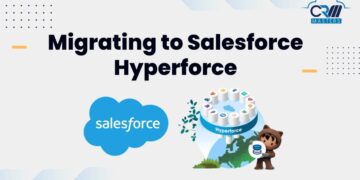If you’re feeling overwhelmed by mounting bills, harassing calls from creditors, or the burden of juggling multiple payments — you’re not alone. Millions of Americans face the same challenges every day. And in your search for solutions, you’ve likely come across two common terms: debt consolidation and debt relief.
But what’s the difference between debt consolidation and debt relief — and more importantly, which one is right for you?
In this comprehensive guide, we’ll break down everything you need to know, including:
- What debt consolidation means
- What debt relief involves
- Key differences between the two
- Pros and cons of each
- When to choose one over the other
- And how Mountain Debt Relief can help you make the right move
Understanding the Basics
Before diving into the differences, let’s define the terms:
🔄 What is Debt Consolidation?
Debt consolidation is the process of combining multiple debts (usually high-interest unsecured debts like credit cards or personal loans) into a single, more manageable loan. Typically, this new loan has a lower interest rate and longer repayment term.
Example: You owe $5,000 on three credit cards. Instead of paying each separately, you take out a personal loan for $5,000 at a lower interest rate and pay them off. Now, you only have one loan to repay each month.
Tools used for consolidation:
- Personal loans
- Balance transfer credit cards
- Home equity loans
- Debt management plans (via nonprofit credit counseling)
✅ What is Debt Relief?
Debt relief, also called debt settlement, is when a professional negotiates with your creditors to reduce the amount you owe. You may end up paying only a portion of your total debt — often 40–60% — depending on your financial situation and the creditor’s agreement.
Example: You owe $10,000 in credit card debt. A debt relief company negotiates with your creditor and settles the debt for $4,500. Once paid, the rest is forgiven.
Tools used for debt relief:
- Settlement negotiation
- Creditor agreements
- Structured settlement programs
👉 Want to explore both options in detail? Visit:
Debt Consolidation or Debt Settlement?
What’s the Difference Between Debt Consolidation and Debt Relief?
Here’s a side-by-side comparison:
| Feature | Debt Consolidation | Debt Relief |
|---|---|---|
| Goal | Simplify repayment & lower interest | Reduce total debt owed |
| Method | Combine multiple debts into one | Negotiate to settle for less |
| Impact on Credit | Usually minimal to positive | Can temporarily lower your score |
| Monthly Payments | Typically one, fixed monthly payment | Varies; may involve lump-sum or structured settlement |
| Time to Complete | 2–5 years | 24–48 months (on average) |
| Savings Potential | Modest (through interest reduction) | Significant (up to 50% off total debt) |
| Best For | People with good credit who can repay in full | People struggling to repay or facing hardship |
Pros and Cons of Debt Consolidation
✅ Pros:
- Single monthly payment simplifies budgeting
- Lower interest rates if you qualify
- May improve your credit score over time
- No need to negotiate with creditors
- Less stressful than dealing with collection agencies
❌ Cons:
- Requires good to fair credit to qualify for low rates
- Doesn’t reduce the total amount owed
- Missed payments can hurt your credit
- You may need to close old accounts, reducing credit age
Pros and Cons of Debt Relief
✅ Pros:
- Reduce what you owe — not just the interest
- Can help avoid bankruptcy
- Programs are structured and professional
- Often no upfront fees — pay only when debts are settled
- Suitable for those in severe financial hardship
❌ Cons:
- May temporarily hurt your credit
- You may receive collection calls while negotiating
- Forgiven debt may be taxable income (though rare)
- Requires a disciplined approach and patience
How Do You Know Which Option is Right for You?
Ask yourself the following questions:
1. What’s my current credit score?
- If you have a score above 650, consolidation may be a viable option.
- If your score is below 600, debt relief may be the better fit.
2. Am I just struggling with high interest, or can I not afford my payments?
- If you’re managing to make payments but want better terms, consider consolidation.
- If you’re falling behind or only making minimum payments, debt relief can reduce what you owe and help you breathe again.
3. Do I want to protect my credit score or reduce my total debt?
- Consolidation is better for protecting your score.
- Debt relief is better for lowering your debt fast, even if your score takes a temporary dip.
Still not sure? Mountain Debt Relief offers free consultations to help you decide which path fits your financial situation.
Why You Should Act Now
Here’s the hard truth: The longer you wait, the harder it becomes to climb out of debt.
- Interest keeps compounding
- Creditors may charge late fees
- Your credit score may continue dropping
- Collections and lawsuits can occur
Choosing a strategy like consolidation or relief isn’t just about paying off debt — it’s about reclaiming your future. The faster you act, the more options you’ll have, and the more money you’ll save.
How Mountain Debt Relief Helps
At Mountain Debt Relief, we work with clients in all kinds of financial situations. Whether you need help with:
- Credit card debt
- Personal loans
- Medical bills
- Collections or charge-offs
- Or just want to know your options
We’ll walk you through your consolidation and relief choices, help you understand the pros and cons of each, and support you every step of the way.
Here’s what we offer:
✅ Free consultations — no pressure
✅ Customized plans — no one-size-fits-all
✅ Experienced negotiators who talk to your creditors for you
✅ Full transparency — no hidden fees
✅ Real results — clients regularly save thousands
Real Results, Real People
“I had $20,000 in credit card debt and couldn’t sleep at night. Mountain Debt Relief helped me settle my debt for half the amount and gave me back my peace of mind.”
– Jessica M., Austin, TX
“I thought debt consolidation was the best option until I talked to their team. They helped me understand the difference and saved me over $9,000 with a relief plan.”
– David R., Chicago, IL
Conclusion: Your Road to Freedom Starts Today
Now that you know what’s the difference between debt consolidation and debt relief, it’s time to make a decision that sets you free.
👉 Ready to explore both options?
Check out our detailed guide:
Debt Consolidation or Debt Settlement?
👉 Need credit monitoring tools and budgeting help?
Visit Get Top Promotions for expert picks.
👉 Want personalized advice?
Book your free consultation with Mountain Debt Relief now.
No matter where you are in your financial journey, remember this: You have options. You have support. And you have the power to take control.


























![What’s the Difference Between Debt Consolidation and Debt Relief? [Full Comparison]](https://postyourarticle.com/wp-content/uploads/2025/06/pexels-cottonbro-5909813-750x375.jpg)

